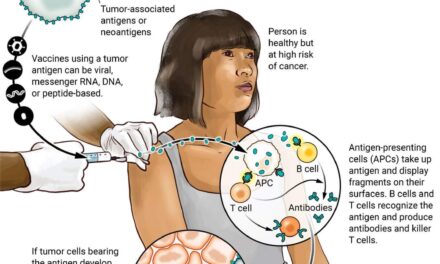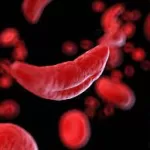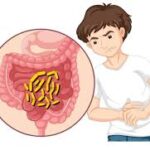New research sheds light on how E. coli bacteria in the gut may be a key factor in the rise of colon cancer, offering hope for new treatments.
In a breakthrough study published in Nature, scientists have uncovered the mechanism through which certain E. coli bacteria promote colon cancer by releasing a DNA-damaging toxin. The findings, which offer new insights into cancer risk and potential therapeutic strategies, were led by Prof. Lars Vereecke from the VIB-UGent Center for Inflammation Research and Prof. Han Remaut from the VIB-VUB Center for Structural Biology.
Colon Cancer and the Gut Microbiome
Colon cancer remains one of the most prevalent and deadly cancers worldwide, with its incidence rising, particularly among younger individuals. While genetics and lifestyle factors are well-known contributors, emerging evidence suggests that the gut microbiota— the complex ecosystem of microorganisms living in our intestines— may also play a significant role in cancer development.
Among the bacteria suspected of promoting colon cancer are certain strains of Escherichia coli (E. coli), specifically those that produce a genotoxin called colibactin. Colibactin has the ability to bind to and damage human DNA, potentially causing mutations that increase the risk of cancer. Alarmingly, these bacteria are found in higher concentrations in individuals with colon cancer.
Despite this knowledge, how these harmful bacteria cause damage to the gut lining and facilitate cancer progression has remained unclear—until now.
The Key Mechanism: Bacterial Attachment
The breakthrough study reveals that the pks+ E. coli bacteria are able to bind directly to the cells lining the intestinal wall, where they release the genotoxin colibactin. This attachment is mediated by pili, long protein fibers on the surface of the bacteria that end in adhesins—molecular structures that allow the bacteria to adhere to the intestinal epithelium.
“This attachment step is crucial for the bacteria to exert their damaging effects,” says Maude Jans, first author of the study. “We found that when the bacteria bind to the intestinal lining, they increase the number, size, and aggressiveness of colon tumors.”
Through a series of experiments, the research team demonstrated that blocking the attachment of these bacteria to the gut lining can significantly reduce tumor growth, offering a potential pathway to prevent cancer development.
Identifying the Critical Adhesins
The team also identified the specific bacterial adhesins responsible for the attachment: FimH and FmlH. These adhesins enable pks+ E. coli to attach to intestinal cells and deliver colibactin to nearby epithelial cells, causing DNA damage and increasing the likelihood of cancerous mutations.
“By removing these adhesins, we were able to prevent the bacteria from attaching and, crucially, from releasing the colibactin toxin,” says Dr. Magdalena Kolata, co-first author of the study.
The research also explored a novel therapeutic approach to blocking bacterial attachment. By targeting the FimH and FmlH adhesins with specific molecules, the team was able to drastically reduce DNA damage and tumor growth in preclinical models, offering a promising new way to combat colon cancer.
A New Approach to Cancer Treatment
Unlike traditional antibiotics, which can indiscriminately kill both harmful and beneficial bacteria, this new therapeutic approach selectively targets the harmful E. coli strains without affecting the beneficial bacteria in the gut. This makes it a much more promising alternative to traditional treatments, which can disrupt the gut microbiome and lead to other health problems.
“The strategy of blocking bacterial attachment without disturbing the entire gut microbiome could represent a game-changer in cancer prevention,” says Prof. Vereecke, senior author of the study.
Probiotics and the Hidden Risk
In an intriguing twist, the study also raises questions about the safety of certain probiotic strains. Some strains of E. coli used in probiotics carry the pks genes but have not been linked to an increased cancer risk in laboratory experiments. However, the researchers found that these probiotic strains also produce colibactin, and carry the same FimH and FmlH adhesins.
“The difference lies in a variant of FimH found in these probiotic strains, which is less effective at binding to intestinal cells,” explains Prof. Remaut, co-senior author. “However, just a few mutations in these strains could make them more potent, potentially restoring their cancer-promoting activity.”
This discovery calls into question the safety of some probiotics, suggesting that more research may be needed to evaluate their risks.
Looking Ahead
The study opens new avenues for cancer prevention by targeting bacterial interactions in the gut. With further research and development, therapies designed to block harmful bacteria from attaching to the intestinal wall could become a key tool in reducing colon cancer risk.
For more details on the study, you can view the researchers’ explanatory video here: YouTube Video.
The research was published in Nature (Jans, M., et al. 2024. Colibactin-driven colon cancer requires adhesin-mediated epithelial binding. DOI: 10.1038/s41586-024-08135-z).











